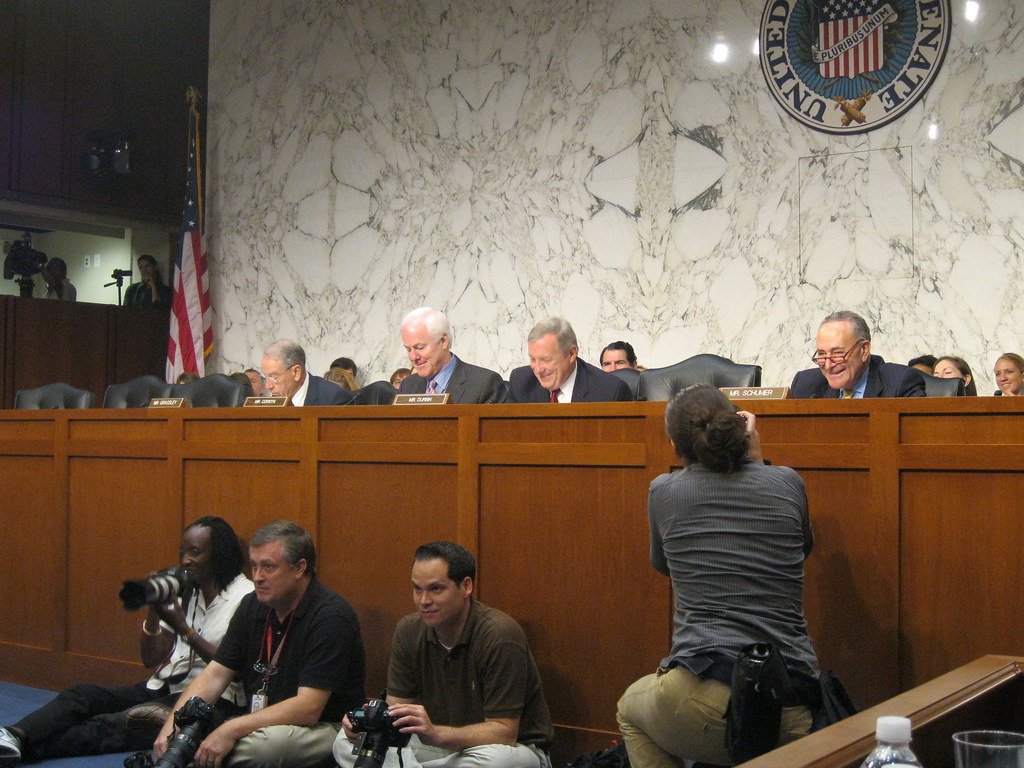On October 10th, amidst the elegant confines of the U.S. Ambassador’s residence in Beijing, U.S. Senate Majority Leader Chuck Schumer gave a significant briefing to the press about a high-profile meeting that took place between a visiting U.S. bipartisan congressional delegation and Chinese President Xi Jinping. The importance of this meeting cannot be understated, especially when viewed in the context of an evolving international landscape, where the U.S. and China continue to find themselves at odds on a wide spectrum of issues.
The Broader Context of the Visit
The overarching goal of the visit by the congressional delegation was to advance the economic and national security interests of the United States, especially in light of a potential summit scheduled between President Xi and U.S. President Joe Biden the following month. In the complex mosaic of global politics, the U.S. and China represent two of the most significant pieces. Their interactions, therefore, set the tone for global dynamics.
However, recent times have witnessed increased tensions between the two superpowers on multiple fronts: from the delicate situation in Taiwan, the intricate webs of international trade, the deadly fentanyl drug epidemic, to deep-rooted concerns about human rights. Within this backdrop, President Biden’s administration has had the dual challenge of putting restrictions on China’s access to sensitive U.S. technology, while simultaneously ensuring that communication channels remain unobstructed. The purpose is clear: while strategic interests must be protected, diplomacy should never take a back seat.
Inside the Meeting: A Focus on Serious Engagement
Schumer’s statements in Beijing provided a window into the deliberations of the meeting. “There was serious engagement with President Xi and others,” Schumer remarked, highlighting the depth and gravity of the discussions. The phrase “serious engagement” underscores that both sides were not just going through the motions, but were earnestly trying to bridge differences and find common ground.
But achieving results in international diplomacy is often like navigating a labyrinth. Schumer’s further comments hint at the challenges encountered during the dialogue. “We need to get results,” he emphasized, noting a perceived shift in China’s stance compared to previous interactions with U.S. representatives. Such observations are pivotal. They not only highlight the evolving dynamics of U.S.-China relations but also signal the need for a recalibration of strategies, approaches, and perhaps even expectations.
Addressing the Fentanyl Crisis
One of the pressing concerns for the U.S. has been the trafficking of the deadly drug fentanyl, which has wreaked havoc in many American communities. Just the previous week, the U.S. had announced punitive actions against various Chinese entities implicated in the trafficking of this drug, amplifying its importance in the U.S.-China discourse.
Given this background, Schumer and his colleagues took the initiative to confront Chinese officials directly about the issue. In a significant move, Schumer requested President Xi to assign a senior Chinese official dedicated solely to the fentanyl concern. The response, while non-committal with a statement that they would “look into that,” does indicate China’s willingness to at least consider the proposal.
Republican Mike Crapo, co-leader of the delegation, offered a positive outlook on the discussions. Labeling the meetings as “remarkably successful”, he emphasized the candid, frank, yet respectful tone of the interactions. Such sentiments suggest that while challenges exist, there is also mutual respect and a shared desire for continued dialogue.
Balancing Geopolitical Concerns: Israel and Hamas
Foreign relations are not confined to bilateral issues. They often encompass global concerns. Schumer revealed that during the discussions, he had urged President Xi to lend support to Israel, particularly after the recent deadly attacks it faced from Hamas. Expressing his disappointment, Schumer noted that China exhibited “no sympathy” for Israel during those trying times.
China, responding from its diplomatic playbook, called on “relevant parties” to cease hostilities and reiterated its support for the “two-state solution“. Such statements are indicative of China’s broader Middle East policy, which often emphasizes stability and negotiated solutions.
Moreover, President Xi, during the meeting, made a poignant remark which can serve as a guiding principle for U.S.-China relations: “competition and confrontation are not in line with the trend of the times”. This perspective, relayed by Chinese state media, suggests that in the eyes of Beijing, cooperation is the forward path, not conflict.
Schumer’s Broader Asian Tour
The meeting in Beijing was just one part of Schumer’s wider tour of Asia, which also encompassed stops in South Korea and Japan. Such visits reflect the broader U.S. strategy of engaging with key allies and stakeholders in the region, reinforcing alliances, and building partnerships in a rapidly changing geopolitical environment.
Conclusion
The recent interactions between the U.S. congressional delegation and Chinese leadership provide a snapshot of the current state of U.S.-China relations. While challenges are evident, so too are opportunities for dialogue, collaboration, and mutual understanding. As the two giants navigate the 21st century
Read More:
